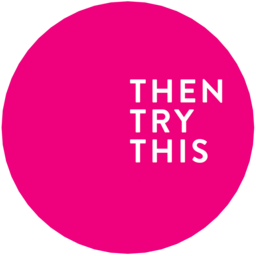Nergal - Citizen Science for Epidemiology
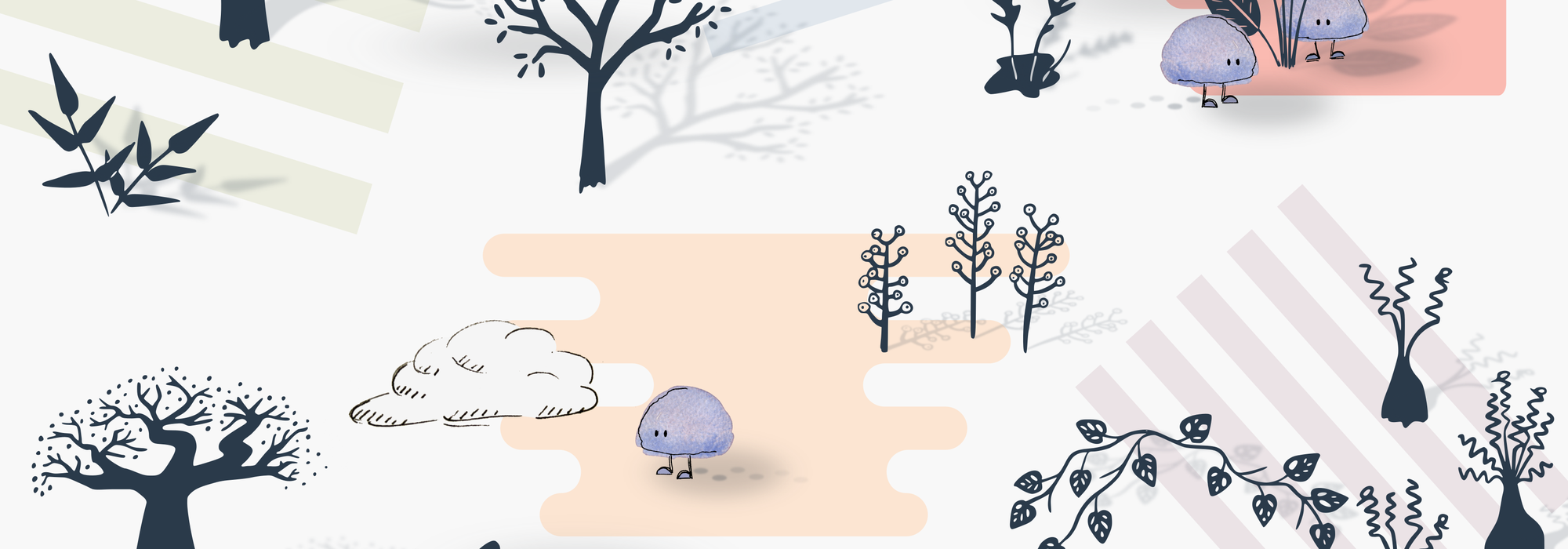
We've been working on a new citizen science game called Nergal with Dr. Matthew Silk and PhD student Nitara Wijayatilake at the University of Edinburgh, and it's now ready to play!
Together we've designed and built this free and open source online game to understand how people's social networks and decision making change how diseases spread through communities. This is something that can't easily be studied in real life, because people's decisions and social interactions are so complex that they are hard to track. The computer models that are used to understand this typically assume that people make perfect, consistent decisions - which isn't realistic. So, we worked together to build an online game world where players can explore, chat with other characters, and catch diseases within the game. This is a safe way to get semi-realistic data for the researchers, and potentially for public health benefits further down the line - but it should also be fun and interesting to play in its own right.
The game is called Nergal after the Mesopotamian god of disease and death. We thought it sounded cute, for something so terrifying.
Most online citizen science/crowdsourcing games aren't particularly accessible, which leaves a lot of people out. We were lucky to get some additional funding from Impetus to make a 'night mode' version which is both high contrast (if you have minor sight problems) and can be played only through the sound (if you have very little or no sight at all). Since all the code is open source as always, we hope this means others can learn how to build this type of game too. There are also some development notes available from our first and second workshops with folks from the sight loss charity iSightCornwall. We think this is also quite an interesting and unusual opportunity for gathering data from an often excluded group, and the data contributed may have useful public health benefits in its own right.
In 2025 we further developed the game to include an exhibition version, which was used by the Royal Society at their Disability in Technology report launch event (23 June 2025) and which we also showcased at the Royal Society Summer Exhibition launch evening (1 July 2025).
The data is already being used by Nitara Wijayatilake as part of her PhD, and we're sticking around on the project for a couple more years to make any tweaks needed and make sure everything's working exactly as it needs to be for the research.
Screenshot of the front page:
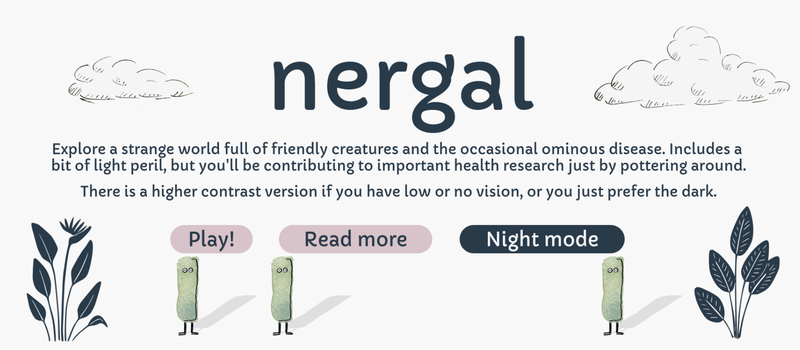
Example results page giving an idea of how your data compares to others:
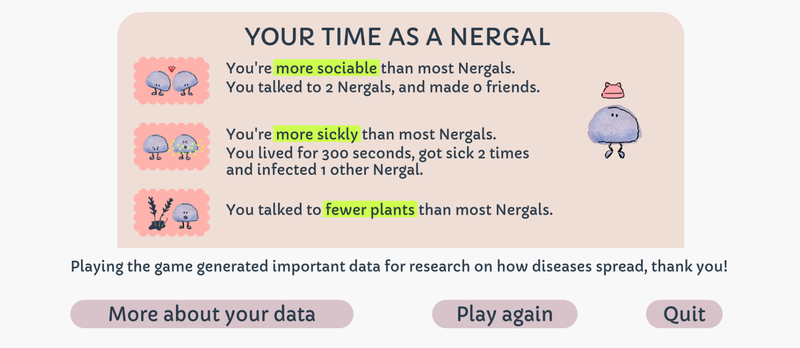
High contrast night Nergal game in action:
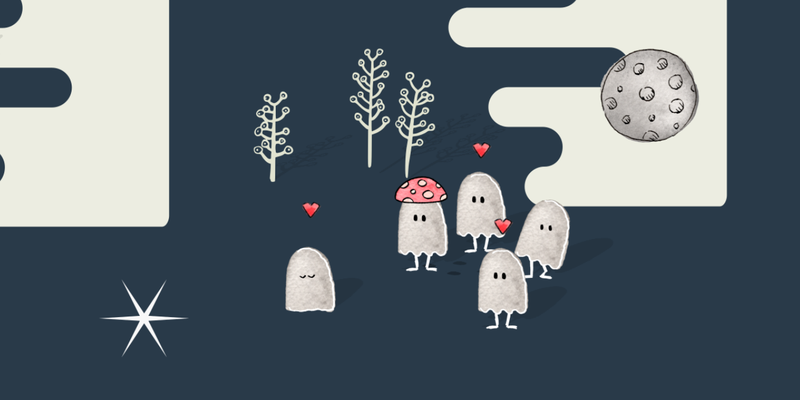
Video about the game and how it was developed:
Funding and ethics
The project is funded by the Royal Society, through Matt's University Research Fellowship (grant number URF\R1\221800), and runs from 2023-2028.
We also joined the Impetus scheme which provided some additional funding to make a version of the game that works through sound, so that people with visual impairments can play, this part of the project runs June 2024 - Jan 2025.
IMPETUS is supporting our project. IMPETUS is funded by the European Union’s Horizon Europe research and innovation programme under grant agreement number 101058677. Views and opinions expressed are, however, those of the author(s) only and do not necessarily reflect those of the European Union or the European Research Executive Agency (REA). Neither the European Union nor the granting authority can be held responsible for them.

This project has ethics approval from the University of Edinburgh under the title 'Nergal - a citizen science research and public engagement tool in behavioural epidemiology' - Ethics Assessment Reference: msilk-0004. Consent for workshop participation and crediting was gathered verbally and confirmed by iSightCornwall staff, as were the feedback quotes.
